This week as part of our Arts Management Blog Series, Suzi Cordell, Education and Families Manager at Regional Arts Victoria generously shares the stories and arts management experiences that have led her to where she is today. Suzi provides a wonderful insight into the industry and discusses her journey entering into arts management work as well as some of the successes and challenges along the way. We appreciate the time she has taken to participate in this blog interview and we hope you enjoy reading it as much as we did!
Can you please provide a brief overview of the work you’re doing now and describe a current project that you’re involved in?
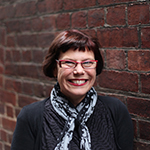
A diverse and exciting career both the Arts and in Education, has led me to my current role of Education & Families Manager at Regional Arts Victoria. I have been here for a year now, originally in a maternity leave position, and am very excited to have recently accepted the ongoing position with Regional Arts Victoria. This is my dream job in so many ways, drawing together skills and experience gained across many platforms including theatre, events, community development and arts education. I am working with a really great team, who genuinely support and respect each other and are wonderful advocates for the arts – a great reason to get up and be thankful every day! Education & Families tours high quality, inspiring arts projects and programs to young people in schools, and communities right across Victoria, reaching remote and disadvantaged areas, as well as larger regional centres. We also run a Creative Leadership Program which gives 12 bright and creative young people from across the state the opportunity to come to live in Melbourne for a 9 day intensive arts experience, working with inspirational industry leaders and artists who help inform, guide and mentor their arts practice and future ambitions.
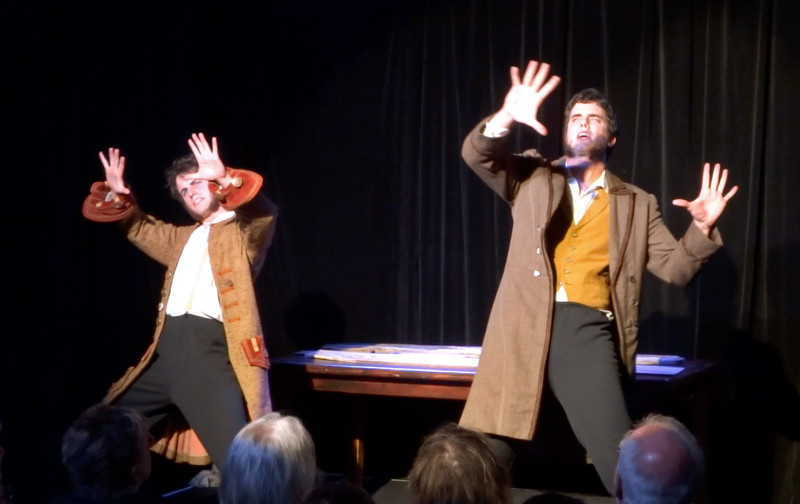
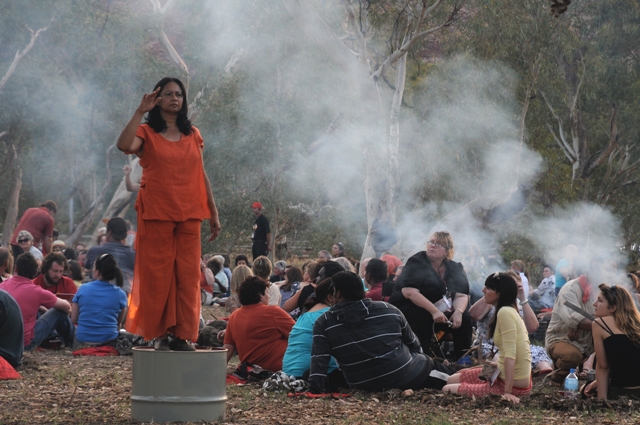
What has been your career pathway leading to this job?
My original training was in education where I taught Arts mostly in schools with CALD demographics, and I later studied Small Companies and Community Theatre. As with most things however – the actual experience of working with people of all ages and backgrounds is the best teacher of all, and I have worked with many companies in stage and production as well as project management across Victoria and the Northern territory and NSW, learning new things and interesting ways of approaching the work often on the job. The core or heart of everything I do comes from a recognition and respect for our First Nation People, and much of my more recent experience has been with companies such as Ilbijerri Theatre, Tracks Dance (NT) and Multicultural Arts Victoria, where I have worked with indigenous and culturally diverse artists and communities on cross arts platforms including dance, visual arts and performance, often in site specific environments on both small and large scale productions. It has been very rewarding to be able to bring people together artistically from diverse backgrounds to tell their stories, and to learn from each other’s cultures, providing a space for long term relationships and partnerships.
Previously my work has involved a lot of travel regionally and into remote areas which of course has its excitement and challenges. Although I miss the chance to work in the NT these days, it has been a great privilege and informs much of the work I do now. I have had several amazing mentors along the way, who have generously and gently helped guide me, and while I am the first to admit – I still have plenty to learn, I feel I am in exactly the right place at the right time.
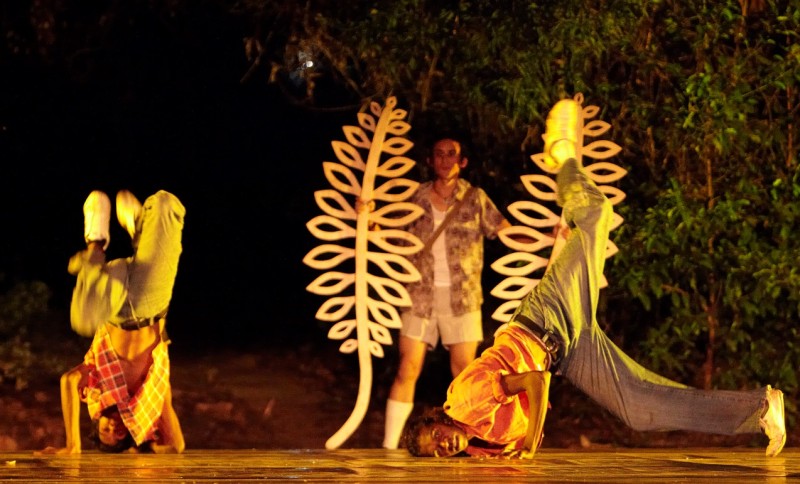
Have you done volunteering, internships or work experience along the way?
The best way to build a career in the arts I feel is through your networks and contacts. So often being involved, honing your skills and being in the right place and with a can do hat on is hugely beneficial. It has been invaluable for me to have worked as a volunteer or in work experience situations on many occasions, especially early in my career, and although it sometimes takes a fair bit of gumption to approach companies and organisations, there was always something to learn and proved to be a worthwhile experience. Sometimes actual job opportunities even followed on and I met great people. These experiences have also now given me an understanding and empathy for young people who are just starting out. On a practical level, I’ve certainly learnt a lot about spreadsheets, data bases and event management this way, and has often pointed out the areas where I have needed further training.
In the beginning what were the challenges in entering the arts management industry?
I use the word “challenges” in a positive sense, as each one has been an invaluable learning experience. Entering the arts industry, especially in the small to medium not for profit sector where most of my work has been, has required more than passion and the joy of revelling in the creative industries. While it is greatly rewarding, there is a discipline and a rigour needed to apply to the work to survive. Making sure that you are adequately prepared, brings the confidence and understanding that “it will all be alright on the night”, so allow plenty of time – to create and rehearse, and for ideas to take hold. Being well organised pays off also of course, but the underpinning element is the art!
The Arts has a way of becoming all consuming – this is why we are involved in the first place – and so leads to essentially knowing where and when boundaries need to be drawn. The feeling that we are all “one big happy family” with our colleagues is very rewarding, and each show or project can create that bond. Sometimes though, this can take priority over those closest and balance can be a big lesson to learn. Often there has needed to be a “role up your sleeves” approach, and a good deal of hard work and some pretty long hours required to “get the show on the road”. One of the biggest challenges in this industry is to work on time management and have clarity around the roles and expectations – where there might be crossover, your areas of responsibility – and how much you can reasonably do in one day, then realise it is important to pace yourself and to rest. Although I choose to engage in the Arts in my leisure time, personally I have needed to work hard on being be clear around my work and life balance in order to have time for family and friends, and nurture relationships and interests outside of work.
What do you love/ find rewarding about your current work? Is there a particular job/ project that you’ve enjoyed?
My current role allows me to do the things I love the most and facilitate and nurture arts experiences for young people and communities. Giving young people, still at school, access to high quality experiences and to enable artists to interact with young people on projects that inspire and illuminate are key drivers for me. It is also very rewarding to mentor and work with young people, following their trajectory from emerging artists through the stages of their arts career, to being established artists and arts workers. In this way we encourage life – long learners who remain engaged with the arts for a lifetime.
The most recent large project for Regional Arts Victoria I produced and managed was the Creative Leadership Program. The excitement, passion and talent of 12 bright, creative and dynamic young people from regional Victoria – from Portland to Terang and Koondrook, Calignee to Wodonga –mostly straight out of secondary school, was an extraordinary experience for us all. They settled into the city of Melbourne, met industry leaders, engaged in workshops, panel discussions, spent a “day in the life” hosting with some of our leading organisations, networked with artists and companies, and saw some wonderful theatre, visual arts and music – all the best we have to offer. They also pitched their project ideas to an industry panel where the winning pitch received the Bridget Lloyd Jones Memorial prize to enable them to further develop their project over the following year. This year the group from the south west will develop an event around a Silo Opera, so watch this space.
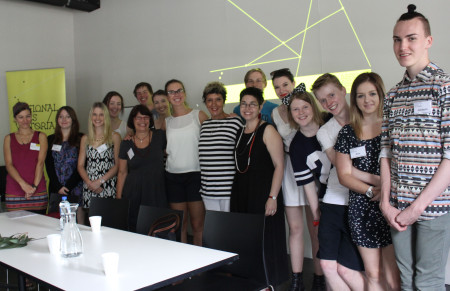
What lessons have you learnt the hard way in terms of your work?
Besides the issues I have outlined earlier – one of the most important things I believe is communication and allowing time to nourish your relationships. We are in a creative sector which thrives when we are building strong and healthy relationships and partnerships, encouraging others to invest in our work –artistically, financially, intellectually and emotionally, and ensuring the impact of what we do is powerful and sustainable.
What tips can you provide for writing funding proposals?
Know exactly what it is that you want and why, and have a good team of people around you. Be able to explain your project simply and easily – steer away from jargon and be sure you are aligning with the grant criteria. The elevator tip – where you need to be able to explain your project to a stranger in the time it takes to travel up 3 floors in an elevator, is a good one. This will show that you have clarity around your ideas.
Read your draft over and over – and always get an outside eye – or two – to proof and make sure your budget adds up. The other very important thing is to always talk to the project manager for the application process – maybe more than once – to be sure you are on the right track and applying for the appropriate category. These people can be worth their weight in gold and will take an interest in your project, and if successful will often follow your progress with great enthusiasm. It never hurts to follow up and they received your application – on time – and have acknowledged the receipt. Lastly – always have a contingency – don’t give up! If you are not successful or do not receive the amount you asked for – it is good to have a backup plan.
What do you find challenging about working in the arts management industry?
Keeping all the balls in the air is an ongoing challenge, and being realistic about dropping one or two sometimes. As an arts manager, I often have several projects on the go at the one time, and others in development, many relationships to nurture – with internal and external stakeholders, funding applications to write and projects to evaluate and acquit. Sometimes it is good to know when to say no to something that might be the tipping point.
There is always the ongoing challenge of keeping abreast of current and emerging issues in the arts, and staying in touch with contemporary practice, which requires you to prioritise. It is vital to get out to see the work, discuss and debate the work and engage in the industry.
What advice would you give to those wanting to get into Arts Management?
Love what you do – that way your work always has context and meaning, and is coming from a place of integrity and honesty. Working in the arts can be hugely rewarding, just get the balance right!
Look for professional development opportunities so you continue to learn and don’t get stale, after all – this is why we are here.
Finally – make time and support your peers and friends! They will be the people who will give you the honest feedback and critique when you need it, – a very valuable thing, and who you will travel this amazing arts journey with. Attend opening nights, gallery shows, music dance and cross arts form events with the understanding that it takes a huge amount of work and investment to get a show up of any kind – and provide support. Find ways to stay in touch – you may not always find the arts as financially progressive – but you do work with creative and fascinating people, sometimes on life altering projects, and what a joy and a privilege that is!
